UNS Surakarta and Unud Cultural Studies Student Seminar Series 2 Discusses Manuscripts and Waste Emergency
The national seminar for Cultural Studies (Cultural Narrative) students at Faculty of Humanities Udayana University (FoH Unud) and Faculty of Humanities UNS Solo (FoH UNS) took place for the second time taking the topic of texts and the waste emergency problem.
The 2nd Cultural Narrative took place online Friday, April 19 2024, opened by two deans, namely the Dean of FoH UNS Solo, Prof. Dr. Warto, M. Hum. and Dean of FoH Unud I Nyoman Aryawibawa, M.A., Ph.D. Apart from that, also present was the Chairman of the Indonesian Cultural Studies Association (AKBI) Dr. Yuliawan Kasmahidayat, who gave his speech.
The two deans welcomed the collaboration between the two Cultural Studies Study Programs because inter-student seminar forums can improve the academic climate among students and lecturers.
"The topic about ancient manuscripts and the waste problem is very topical. Cultural studies ideas are needed to interpret the manuscripts and solve the waste problem which is useful for society," said Prof. Warto.
Meanwhile, the Dean of FoH Unud suggested that this academic collaboration could be continued and expanded through guest lectures to improve the quality of the teaching and learning process. In line with what the Chairman of AKBI, Dr. Yuliawan Kasmahidayat, M.Sc.
The 2nd Cultural Narrative was attended by almost 85 participants, featuring two speakers, both of whom were PhD students in Cultural Studies. The first speaker was Asep Yudha Wirajaya (Doctoral Study Program in Cultural Studies - FoH, Sebelas Maret University) with the presentation topic "Enlivening the "Silent Road": When Ancient Manuscripts Intertwine in Cultural Studies".
The second speaker was Anak Agung Dalem (Doctoral Student in Cultural Studies, FoH, Udayana University) with a presentation entitled "The Ensnaring Waste Emergency: What is the Power of Cultural Wisdom?"
The seminar was well guided by Titah Resen, a PhD student in Cultural Studies at FoH Unud.
New Meaning is More Interesting
In his presentation, Asep Yudha Wirajaya said that the study of ancient manuscripts so far seemed to have taken a "quiet road" far from the hustle and bustle of academics, both in the exact and social-humanities fields.
However, the presence of cultural studies seems to open up new opportunities for philologists to explore the socio-cultural context surrounding the existence of these ancient manuscripts and provide new, more interesting colors and meanings.
"Of course, this requires smart work, especially in obtaining data related to various events surrounding the existence of these ancient manuscripts," said Asep Yudha.
Apart from that, according to Asep Yudha, this opportunity also opens up new perspectives in terms of research methods because it combines philological research methods and cultural studies research methods. The result of the study is to present something new in the study of manuscripts which is very rich in the aroma of cultural studies.
"This means that this opens up a new realm, both for cultural studies enthusiasts to look back at ancient manuscripts and for philologists to make their studies much more in-depth and holistic," said Asep Yudha.
In his presentation, Asep demonstrated how an ancient text such as Il Galigo could be transformed into a contemporary performance that was dense in value and artistic and very impressive, reaching stages in America.
Very Complex
In his presentation, Anak Agung Dalem said that the waste problem is complex and intertwined with ecological problems, triggering climate change, carbon emissions and the greenhouse effect, potentially causing the most terrible natural disasters for billions of the world's population.
"Indonesia is experiencing a waste problem and environmental threats that are no less serious than other countries," said Anak Agung Dalem.
According to him, even though Law Number 18 of 2008 concerning Waste Management has been in effect for almost two decades, until now it has not shown significant results, in fact it has become increasingly complex and complicated. In late 2023, when a weather anomaly occurred with an increase in extreme air temperatures, 35 landfills in Indonesia, including the Sarbagita Suwung landfill in Denpasar, experienced fires.
"The trash is scattered uncontrollably, the trash emergency is ensnaring," he said.
As if to complain about the problem to our predecessors (ancestors) who were proven to have implemented various cultural wisdoms (including the cultural wisdom of waste management), the formal leaders reversed their attitude by handing waste management back to the village residents (customary manners and traditional villages), as per Bali Gubernatorial Regulation Number 47 of 2019 concerning Source-Based Waste Management.
However, 'waste anarchy' does not provide enough space for cultural wisdom to carry out rescue efforts. 'Social corrosion' and 'unconformity of interests' have led to the degradation of the value of cultural wisdom, even giving rise to various resistances including formless resistance to policies that capitalize on cultural wisdom. The waste emergency is increasingly serious and chronic.
During the discussion, many participants asked questions, such as from Dr. Maria Matildis Banda asked several questions, including whether there were waste management techniques in ancient texts.
Participant Mehamat Karo from the North Sumatra Provincial Museum said that they had almost 250 manuscripts, including Malay and Batak manuscripts. "When researching the Batak script, there were many words that were not found in the Batak dictionary, so it was a bit difficult to understand," said Mehamat.
Questioner Dr. Made Suastika also suggested that Cultural Studies research could provide real solutions to the waste problem. "In Bali, there is a lot of recycling for crafts," said Suastika.
Depth of Discussion
In his closing remarks, the Head of the UNS Surakarta Cultural Studies Doctoral Study Program, Habsari, PhD., expressed his praise for the topic and depth of discussion of the two speakers.
"The science of Cultural Studies, which is considered to be still in its infancy, can actually provide enriched interpretation of various fields, such as manuscripts, rubbish, as well as liquor and comics which were discussed in the 1st series of seminars," said Habsari.
The same thing was also conveyed by the Coordinator of the Doctoral Study Program for Cultural Studies, FIB Unud, Prof. I Nyoman Darma Putra, who assessed that the discussion opened the participants' insight into Cultural Studies analysis.
"Apart from that, this joint discussion also opens up opportunities for students and lecturers to build academic networks for possible joint research in the future," said Prof. Dharma. (dp)
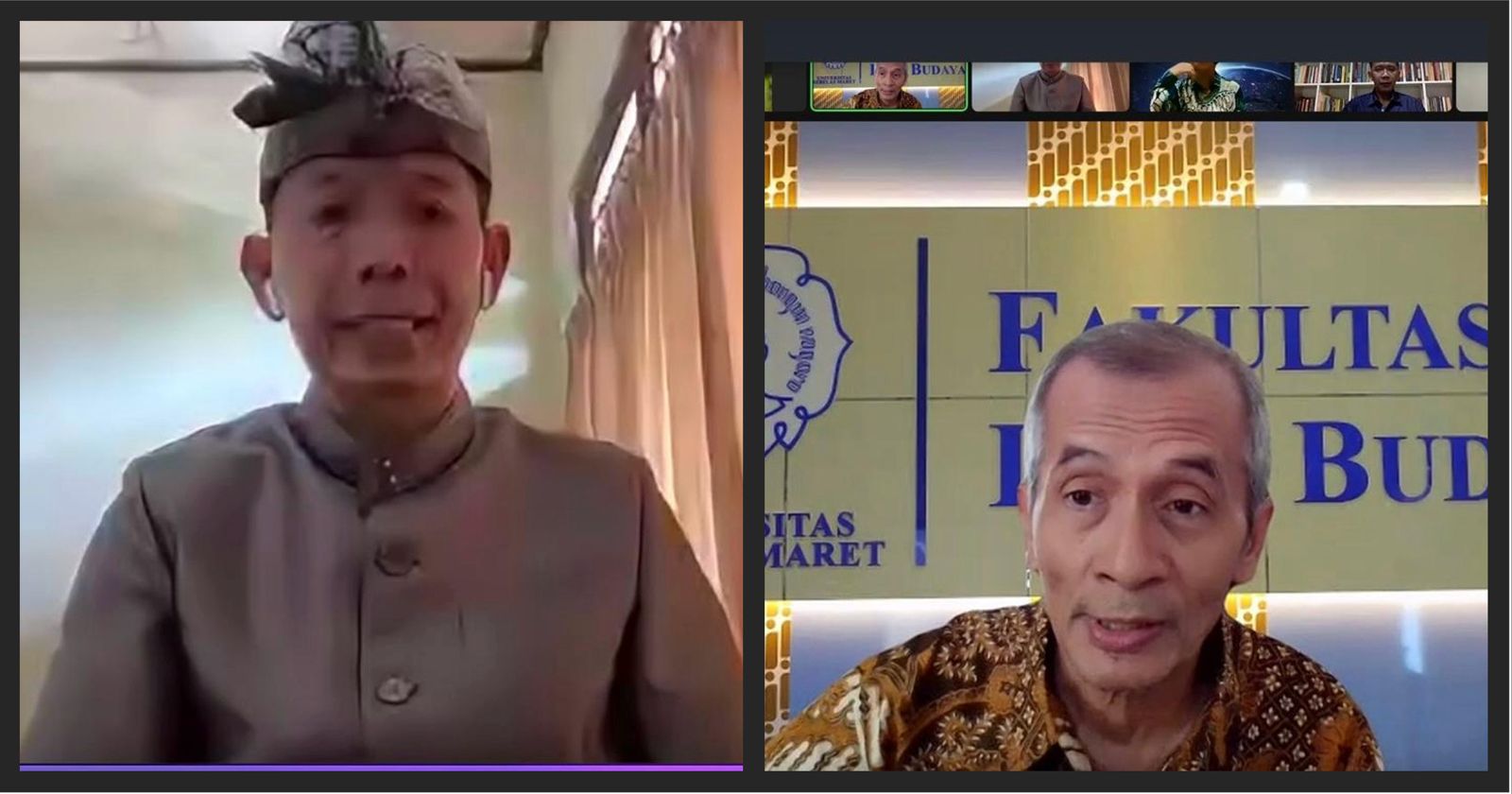
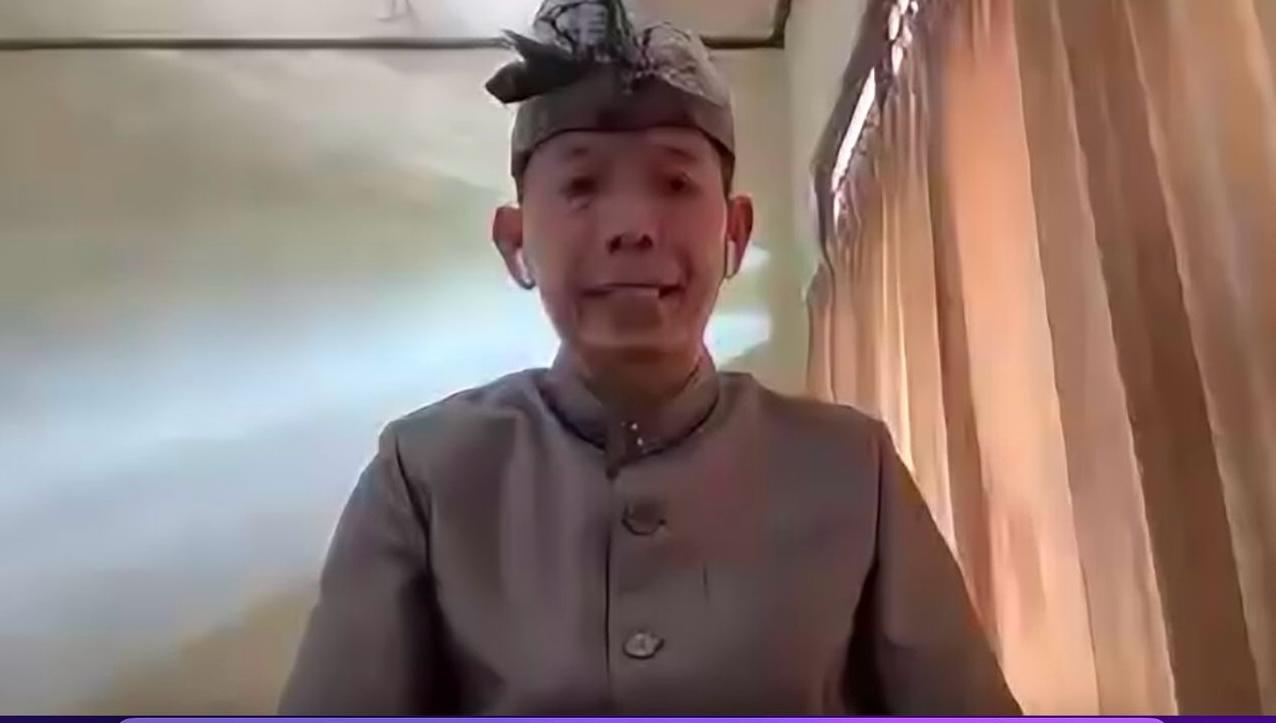
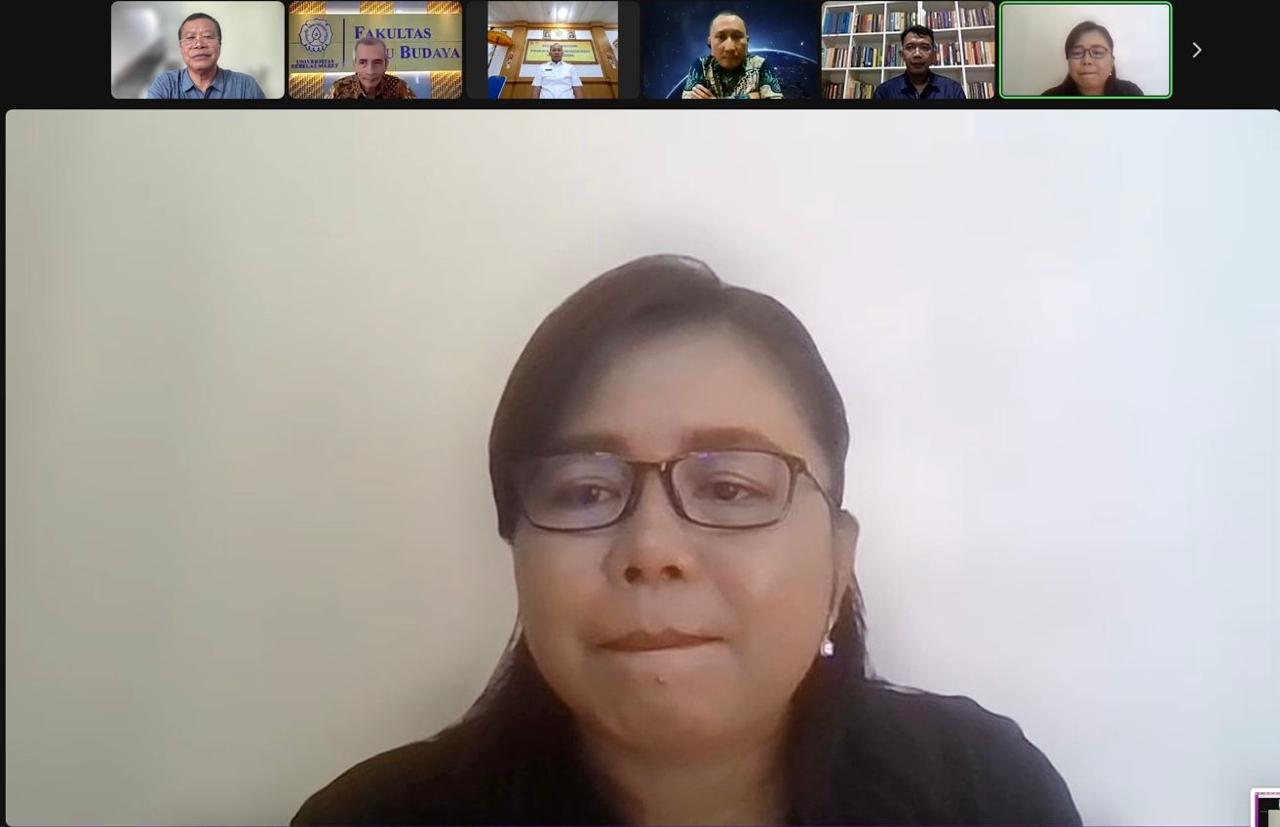
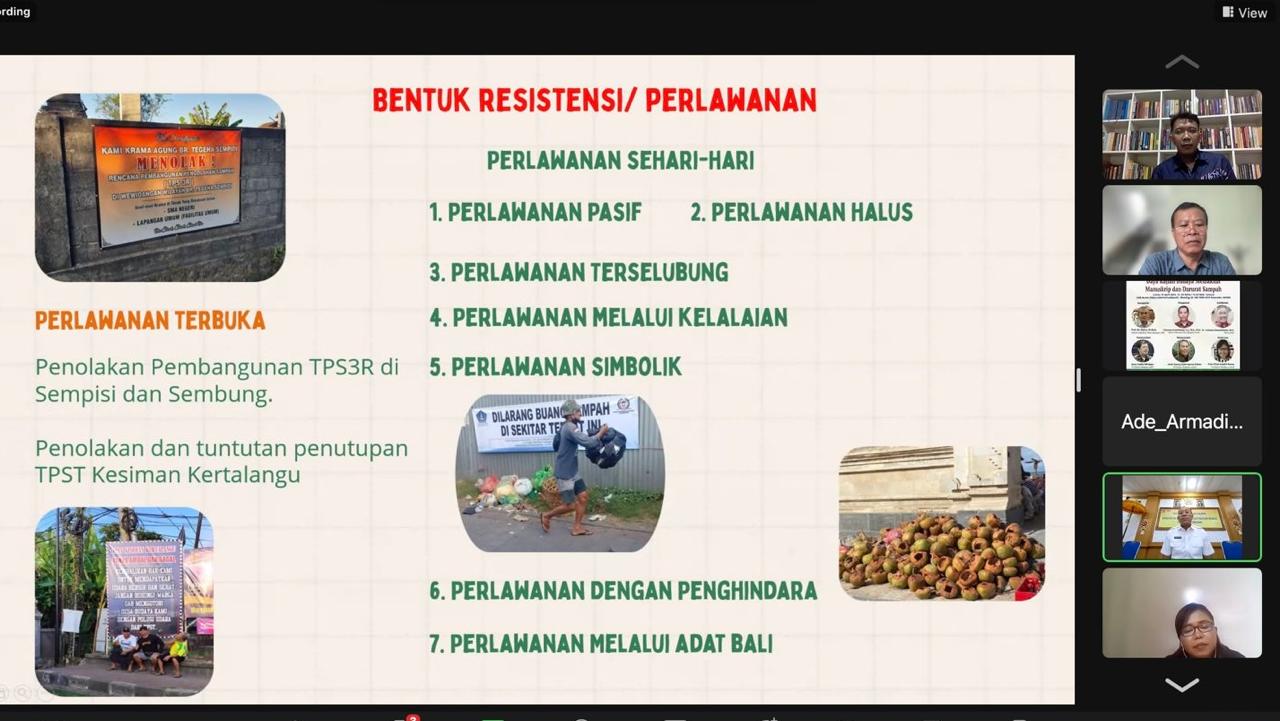
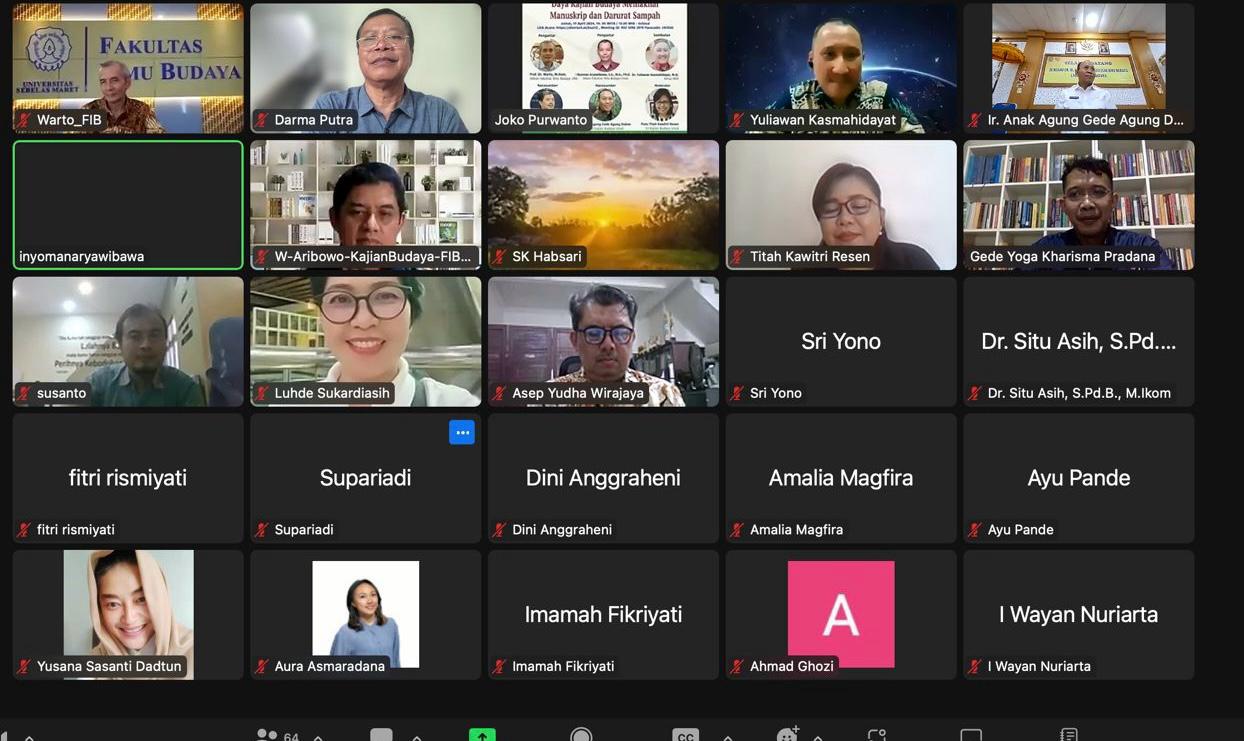
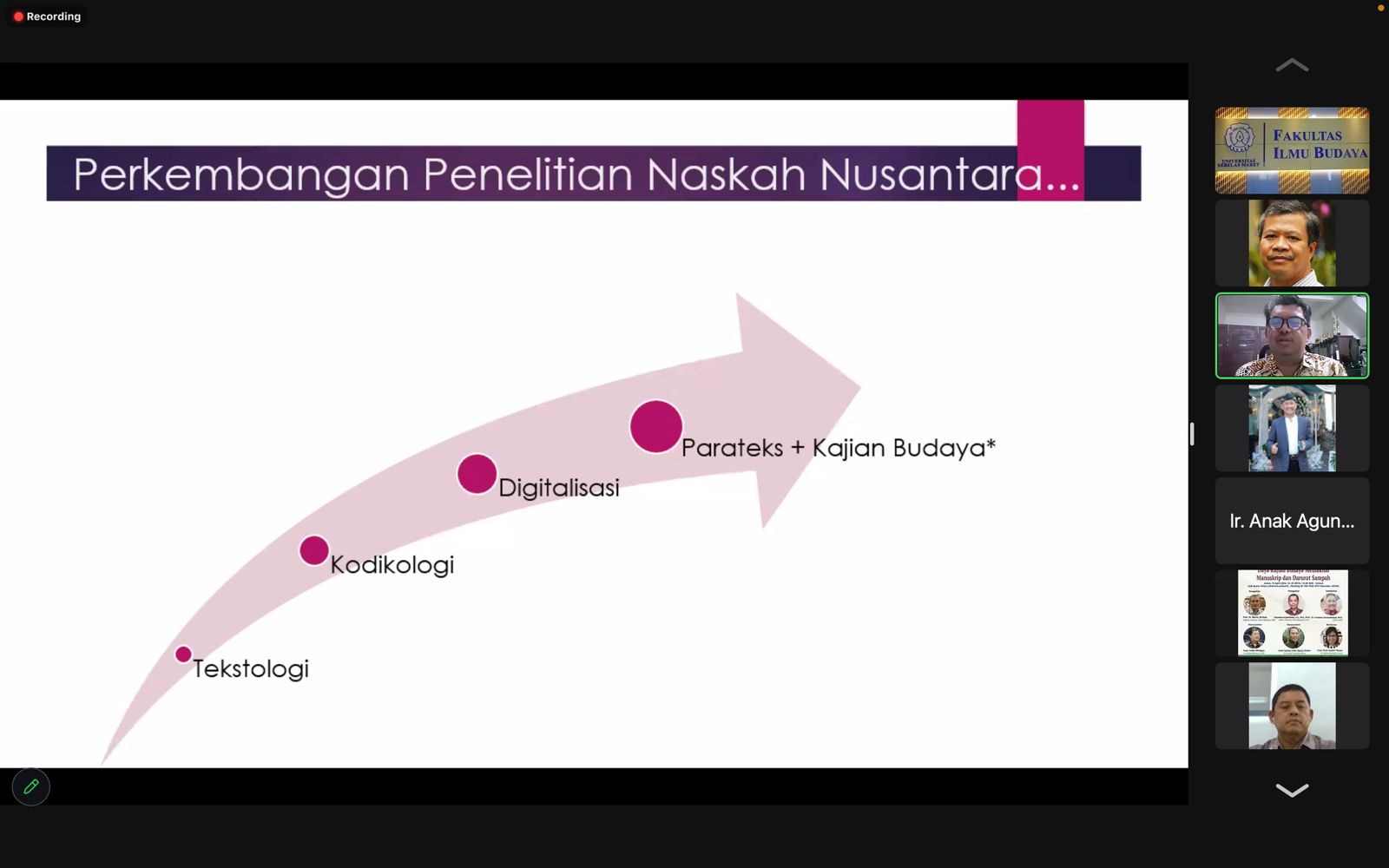
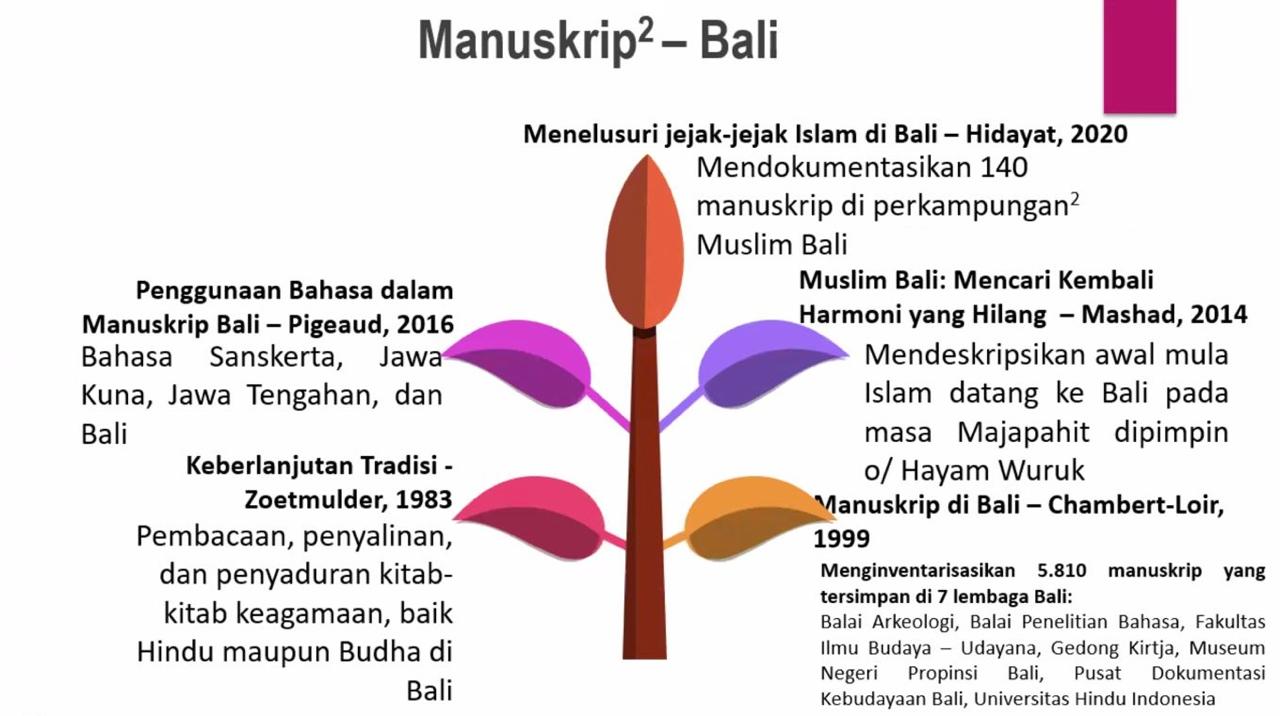
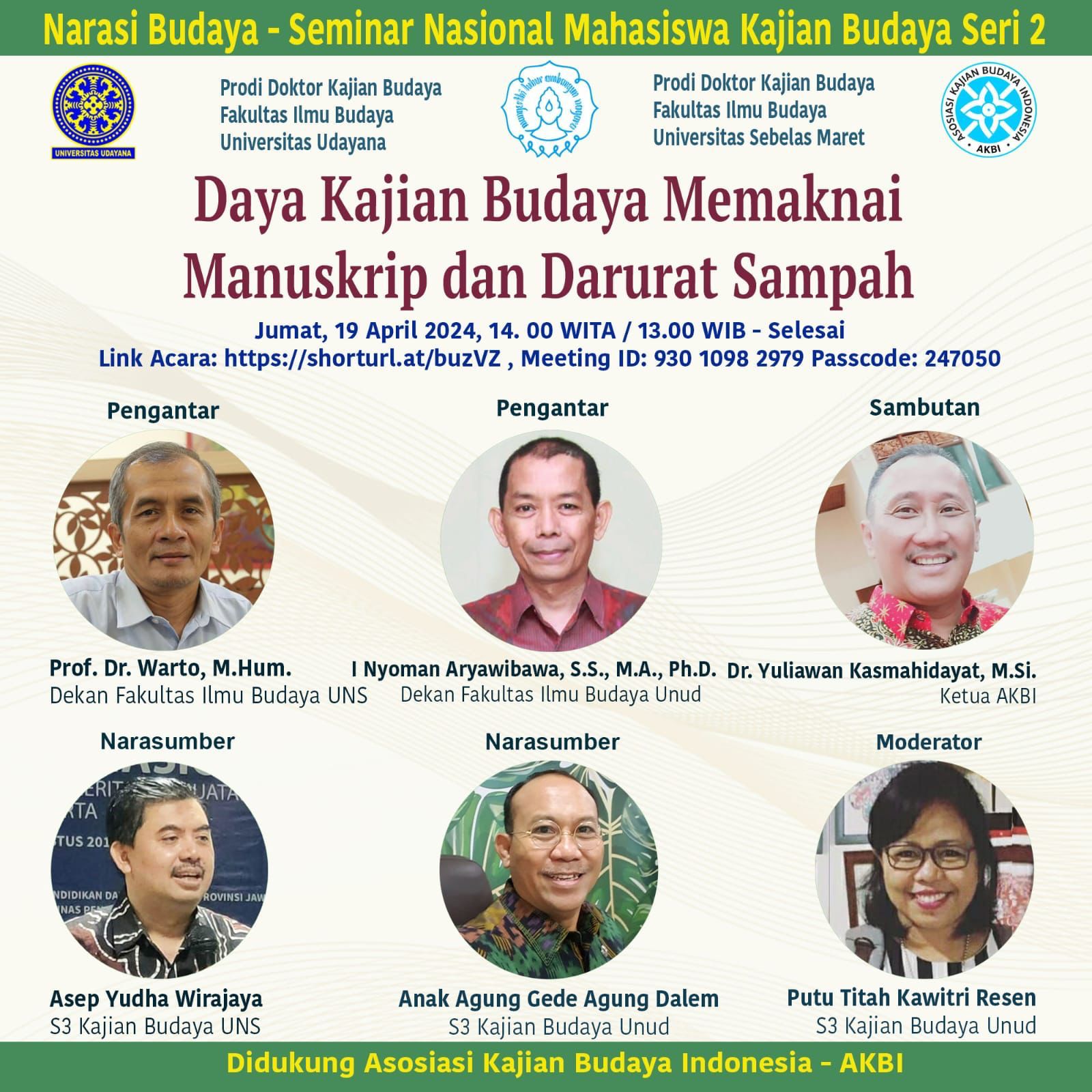
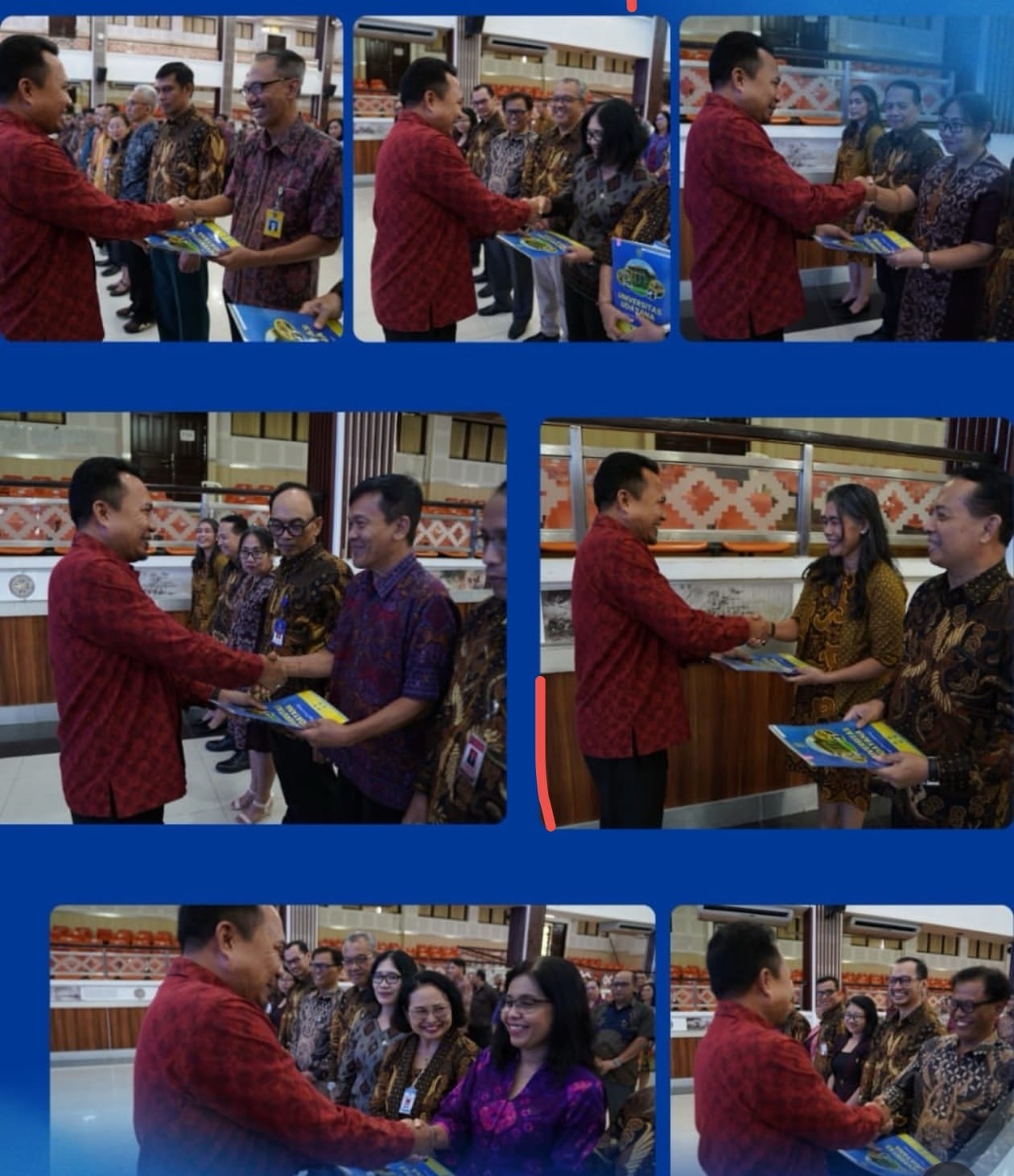
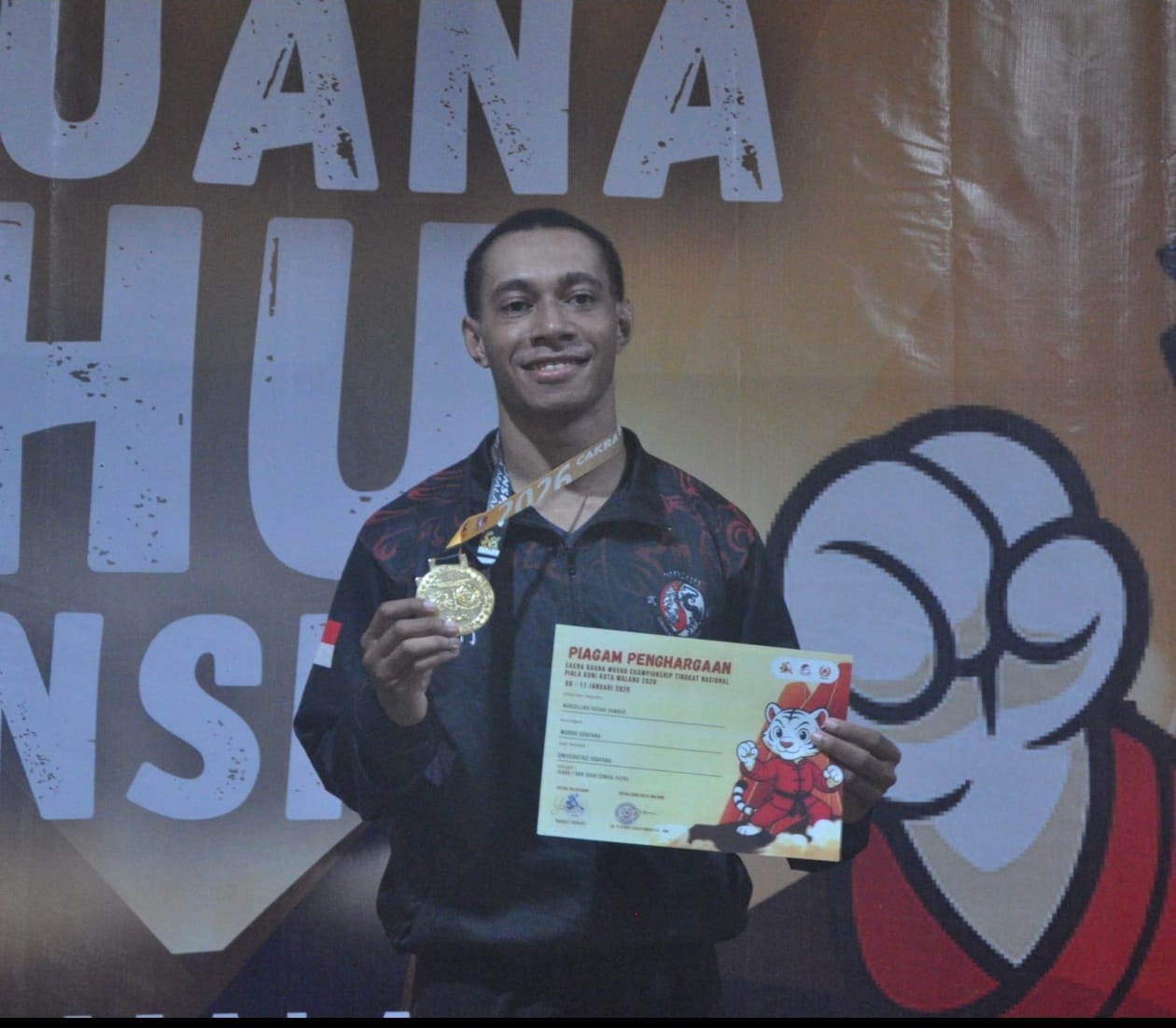
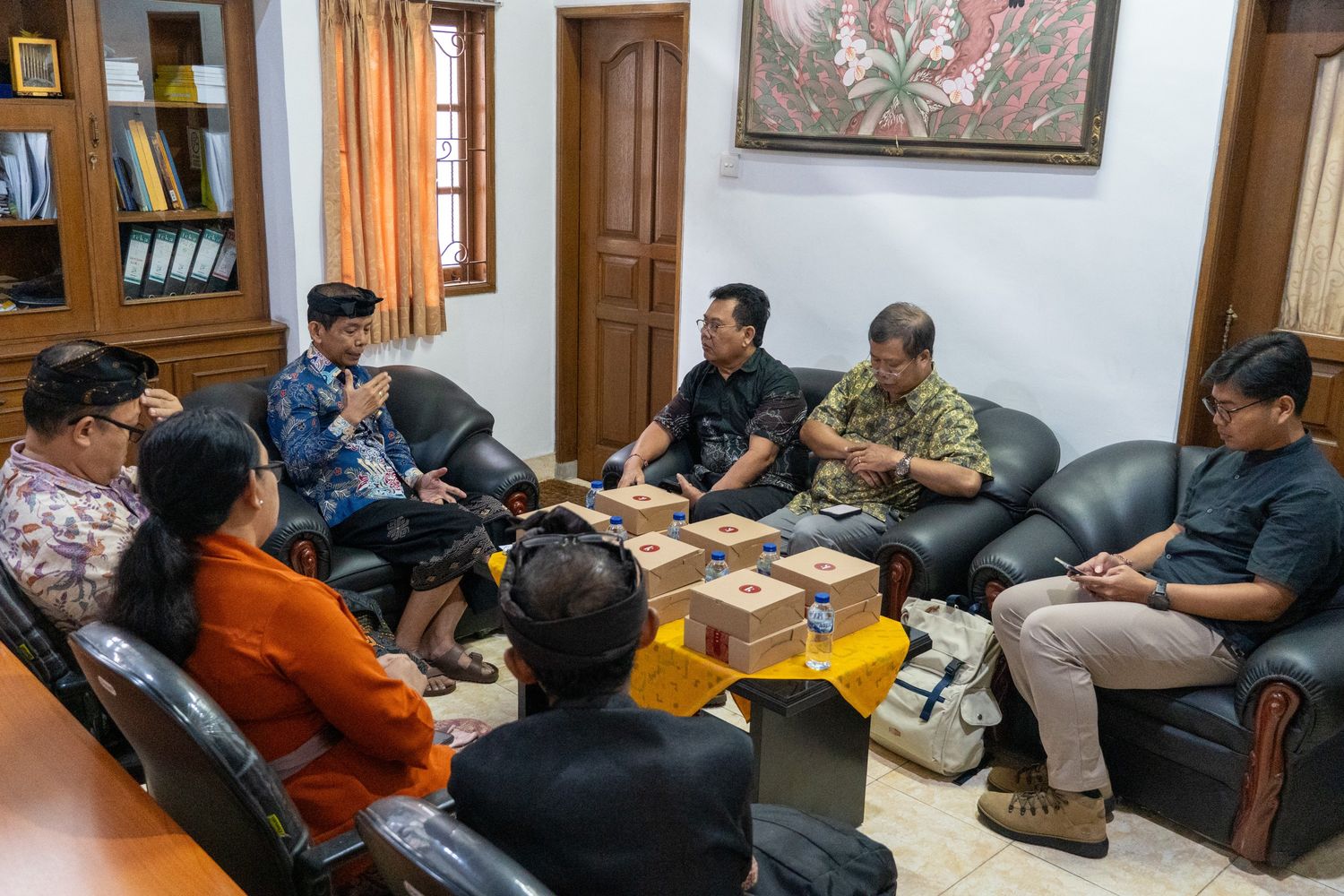
UDAYANA UNIVERSITY